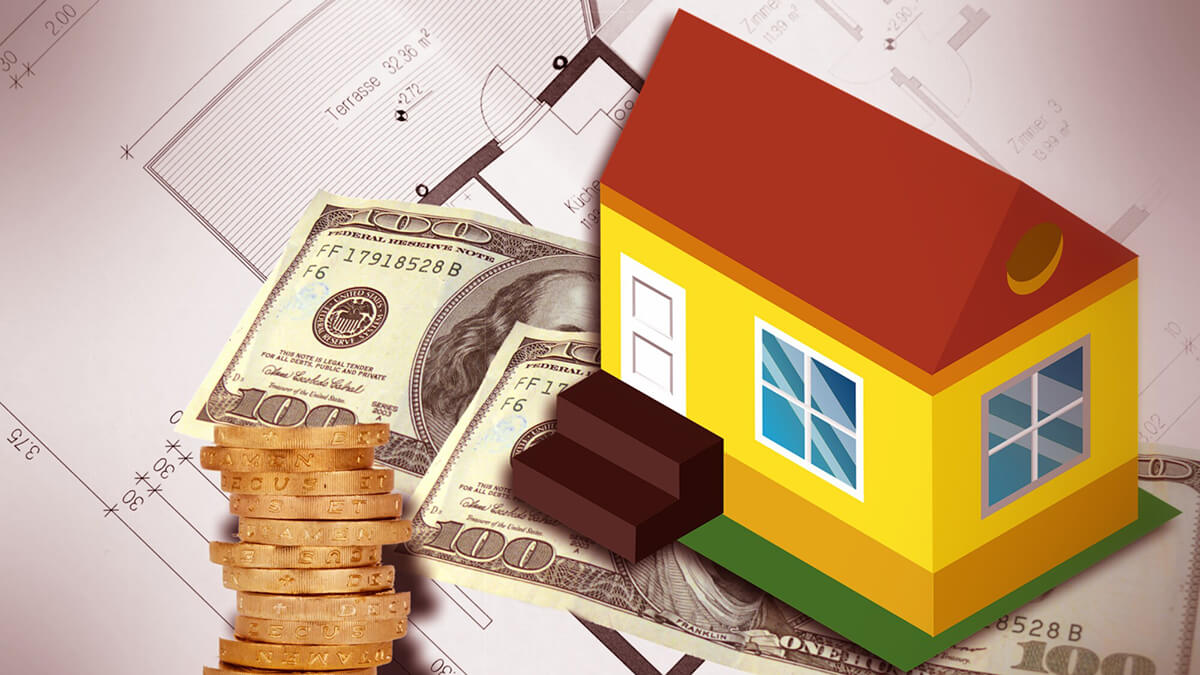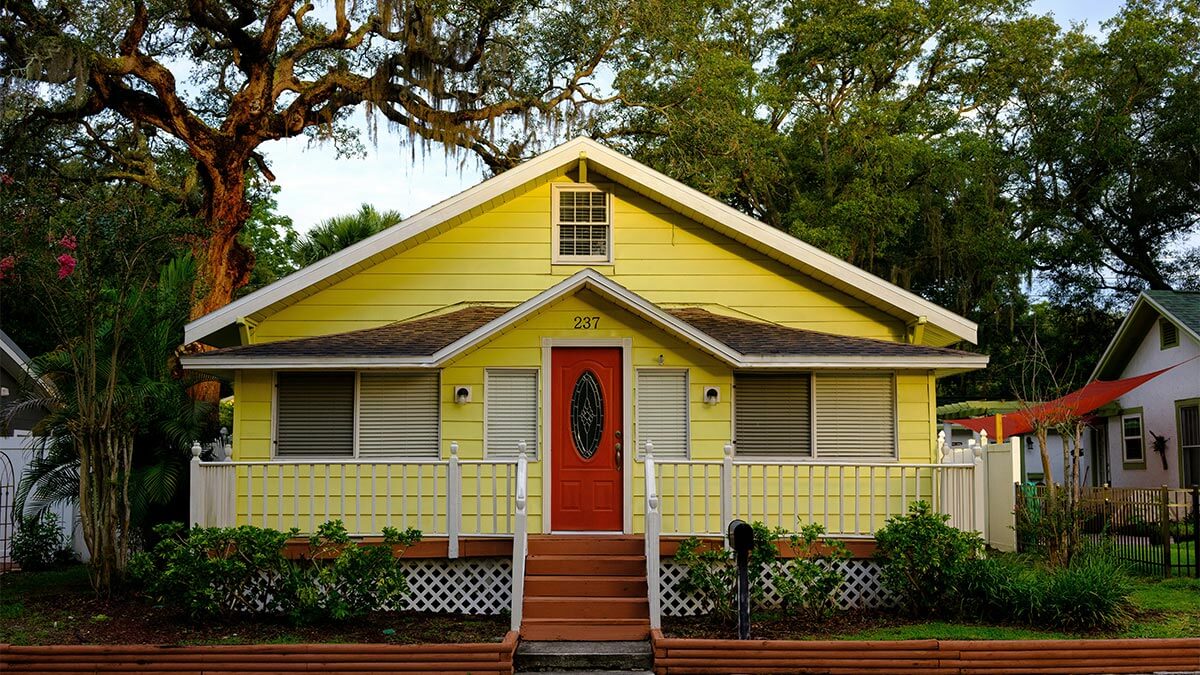Did you know that property is one of the most popular investment methods? This is for a good reason, as it lets owners charge a rental for a relatively passive level of work. But did you know homes also accrue value as they age?
Known as appreciation, there are several ways the value of a property increases the longer you hold it. Below, we’d like to discuss the factors influencing average home appreciation each year.
What Is the concept of home appreciation?
Home appreciation is a term used to describe the increase in value a home will gain as it ages. There is a wide range of factors that can contribute to this. It may involve improvements made to the property, trends in the local real estate market, and the economic conditions of the country in which the property is situated.
Many homeowners benefit from appreciation by seeing an increase in their home’s equity. This can be used to borrow money or make other investments. It is another reason why many see second properties as good investments, as you can earn money from rental incomes and the increase in value.
Discover your home’s worth online for free in minutes!
Factors that can influence home appreciation
If you are wondering how much homes appreciate per year, then several factors can influence the value of a home, both positively and negatively.
If you want to determine how a house may appreciate for investment purposes, you should also understand that none of these is a given. You may find none of them have a bearing depending on the property, while some may change the value massively.
Location
The location of any property can significantly influence how it gains value. When homes are located in desirable areas, they tend to appreciate quicker than less sought-after ones. Areas with good schools, low crime rates, and good transportation routes are most likely to accrue value faster.
This is because the demand for homes in these areas is high, so prices increase. Additionally, homes in areas experiencing economic growth or redevelopment may also appreciate as new businesses move in and improve employment.
However, this can work both ways. All it may take is a large business closure or industry collapse to send it into reverse. Homes located in areas that are declining economically then often go on to suffer high crime rates and unemployment, and they may even decrease in value.
Home improvement
Making upgrades to a home will increase its value if they are well-planned and thought out. They do so by making the property more attractive to potential buyers. However, certain home improvements may add more value relative to the initial outlay.
For example, installing a hot tub is an expensive outlay that may seem like it makes a home more valuable and desirable. The truth is that they are expensive to install and run and are not sought after. On the other hand, replacing appliances may turn out cheaper to complete and be a much more inviting addition to potential buyers.
One of the most popular improvements is to remodel the kitchen or bathroom. They can have a huge impact on the overall appeal, as they are considered high value.
Another is to increase the curb appeal of a home. This is the view from the outside of the house. It may involve adding decking and landscaping the yard or garden.
Finally, adding more livable floor space is guaranteed to increase the value. You may finish a basement or convert an attic.
Interest rates
Changes to interest rates can have implications for the real estate market. This is because most of it is financed by borrowing through mortgages.
A rise in interest rates makes it more difficult for first-time home buyers to get on the property ladder. When interest rates are high, it becomes more expensive for people to borrow money to purchase a home. This can decrease the demand for property, lowering its value.
At the opposite end of the scale, when interest rates are low, it makes it more affordable for people to borrow money. Demand for housing goes up, as do prices.
What is the influence of home appreciation?
Home appreciation will result in several different changes to the value of the property. Some of these, such as taxes, may also influence its upkeep and running costs. The most important are collected below.
Taxes
Taxes are one of the main factors which will change as a home accrues value. The first main change will be with property taxes. As they are based on the value of a home, the tax payments will go up with it as it increases.
Another area to consider is capital gains taxes, though this only applies when selling the home. This tax is also only based on a percentage of the profit a buyer makes from the sale. Depending on the owner’s tax bracket and the time the home is held, it will also change.
Expenses like mortgage interest, property taxes, and specific home improvement costs may be tax-deductible. This can also vary depending on the location and the circumstances. It may also change over time, so get up-to-date advice from an expert.
Rent
When the value of a home goes up along with its desirability, landlords may be able to charge higher rent. They can charge. more if they add extra space andugh home improvements.
External values can also impact rent prices. When interest rates are high and buying a house becomes unfeasible for most people, they naturally turn to property rentals.
This stimulates demand, increasing rents further. In fact, 44.1 million US households are now renters.
In areas with rent control laws, the value of a property may be capped, which can limit the ability of landlords to increase rents. Hospitality, particularly schemes like Airbnb, can also impact this in larger cities. Many owners may change to short-term lets, pricing out locals.
In some cases, laws have been put in place to prevent this. However, the demand for short-term let properties in tourist areas can also drive-up appreciation.
Equity
The equity in a home is the difference between its value and the remaining mortgage left to pay on a property. As value increases, so does equity. It is important for the owner as the money can be used as a guarantee if they want to borrow or take out other mortgages.
Imagine a home is worth $200,000, and the homeowner has a mortgage balance of $100,000 left to pay. The homeowner’s equity in the property would be $100,000.
Should the value of the home increase, the homeowner’s equity would increase with it. The more mortgage they pay off will increase their equity as well.
Home appreciation determination method
To determine how much a home has appreciated, you first need to know its current value. You can check similar properties in the local area and see what they are selling for or on the market for. Remember, this is just an average, so a full appraisal by an expert will be more accurate.
You can then compare the property’s current value to its past value. Deduct the purchase price of the property from its current market value. If you want to go further and determine your equity, deduct the mortgage owed from the total, and you will get the value you have made after the remaining balance is paid off.
Predicting how much a house will appreciate is much tougher. Economic factors and the local market are beyond your control and are always speculative. However, you can get a rough prediction by working out how much prices have risen in the area, on average, over a given number of years.
Once you have this, add the value of any major renovations you plan on doing in the coming years. Get a rough value of what this will add to the property.
Wondering what your home’s worth? We can help
We can assist if you want to find out how much your house is worth in the current market conditions. All we need is some details about your house and we’ll let you know how much you could cash in.
iBuyer.com is the easy way of selling a house. With just a few clicks, you can get instant offers for your home. Get a free home valuation with no obligation in an instant.




